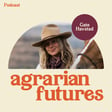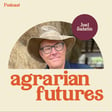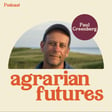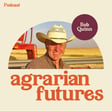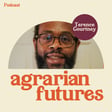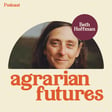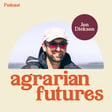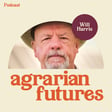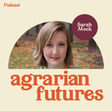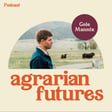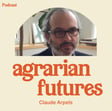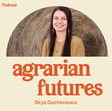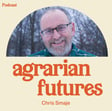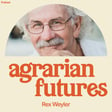
Why Soil Is the Key to Regeneration with David Montgomery
If regenerative agriculture is about rebuilding the foundations of our food system, then soil is where that story starts.
Geologist and author David Montgomery has spent decades tracing how the health of our soil shapes everything else: the nutrition in our food, the resilience of our farms, and the long-term fate of entire civilizations. What he shows is both sobering and energizing. We have degraded our soils at an astonishing pace, yet we now understand enough about how they actually work to turn the tide.
In this conversation, David helps us zoom out. He connects the collapse of ancient societies to the vulnerabilities we see in modern industrial agriculture, and he lays out what farmers around the world are doing to rebuild soil faster than it erodes. If regeneration is the goal, soil biology is the map.
In this episode, we get into:
• How soil degradation has shaped the rise and fall of societies
• The real consequences of erosion, tillage, and synthetic nitrogen
• Why soil microbes are central to nutrient density and farm resilience
• What regenerative farmers are proving about soil recovery timelines
• Three core principles that can rebuild fertility at scale
• Why technology must complement, not replace, ecological understanding
• The policies and incentives needed to make soil health the baseline, not the exception
More about David:
David R. Montgomery is a MacArthur Fellow and professor of geomorphology at the University of Washington. He studies landscape evolution and the effects of geological processes on ecological systems and human societies. An author of award-winning popular-science books, he has been featured in documentary films, network and cable news, and on a wide variety of TV and radio programs. His books have been translated into ten languages. He lives in Seattle with his wife, and co-author, Anne Biklé. Their latest book What Your Food Ate: How to Heal Our Land and Reclaim Our Health was published summer 2022. Connect with them at www.dig2grow.com.
Agrarian Futures is produced by Alexandre Miller, who also wrote our theme song. This episode was edited by Drew O’Doherty.

